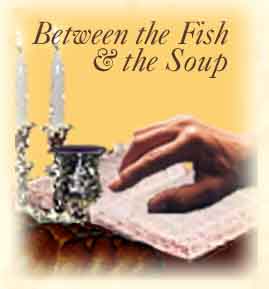

|
The father-in-law of Moses said to him: “…you shall choose from all the people men of accomplishment …they shall judge the people at all times …if you do this thing …then you will be able to endure, and this entire people shall arrive at its destination in peace” (18:17-23). According to the simple interpretation of the text (and according to the opinion that Jethro came before the Torah was given - see Rashi on 18:13) the visit of Jethro took place between the miracles associated with the Exodus and the Revelation at Mount Sinai. The story of Jethro, then, forms the link between G-d’s miracles and the full acceptance of His Teachings. Jethro reacted to the miracles (of the splitting of the Red Sea and the victory against Amalek – Rashi) by exclaiming, Now I know that G-d is greatest of all the gods (18:11). Why did Jethro – a relative newcomer – constructively criticize the way Moshe dispensed justice? True, he observed that Moshe would be overworked. Still – was then the time to point that out? The immediate aftermath of the Exodus was a time of instability – there were wholesale crises (as detailed in Parashat Beshalach) to take care of, which would seem to have immediate priority over training a judicial system. One answer is to emphasize that this suggestion came from an outsider – Jethro. He only knew of the miracles of the Red Sea and defeat of Amalek by hearsay. Nevertheless he was a member of the human race, and he realized the obligation of observing the Seven Laws of the Sons of Noah – the Basic Laws given to humanity. As such, he saw that the requirement to establish courts – one of the Seven Laws - was carried out inefficiently. For the Israelites to become the Chosen People – as described in the next section – their conduct and organization had to be at least up to the standard required of humanity in general. As Jethro pointed out, this was not so. Communal disorganization in the court system would mean that individuals would not get a fair deal, and therefore not everyone would arrive at their destinations in peace… The Ten Commandments.It is the general custom in Ashkenazi synagogues to stand up when the Ten Commandments are read from the Sefer Torah. A well-known reason refers to the principle expounded by Saadia Gaon: each one of the 613 mitzvot belongs to one of the Ten Commandments. For example the laws of the Festivals come under Shabbat, those of paying one’s employee on time under theft and so on. Thus the Ten Commandments are the complete microcosm of Torah observance. They were subsequently explained and expanded in G-d’s teaching Moses the meanings of the Torah over the next forty days, whose more detailed laws are recorded from Parashat Mishpatim onwards. However it appears difficult to see how the Ten Commandments are representative of the 613 Mitzvot as a whole. The first three Commandments focus on the Almighty, and Man’s relationship with Him – acceptance of G-d and his Presence as the Universal Power. Shabbat is followed by the remaining six Commandments that are exclusive to personal relationships. These deal with respect due to parents, and prohibitions against murder, adultery, theft, false testimony, and coveting. One suggestion could be found in considering the verse almost immediately after the Ten Commandments: Moses said to the people: “Do not fear – G-d has come, in order to elevate you (spritually), and so that the awe of Him should be on your faces, that you do not sin.” (20:16 – translated according to Rashi). From this we learn that the Ten Cmmandments had the function of creating an indelible impression of the Almighty on the Israelites. The Revelation was an experience designed to prevent the Israelites from sinning in the future. The Israelites feared Him when He was there. The reason He came was to impress on His People that He was always there: even when His Presence was not experienced so powerfully. Therefore the first three Commandments remind us of the universal, constant presence of the Almighty, and that His Word is true (implied in the Third Commandment). This principle – I put G-d before me at all times (Tehillim 16:8) is at the very core of the whole Torah. However once a person becomes fully taken up with the worship of G-d there is a well-known tendency to go to the other extreme. That is to concentrate exclusively on mitzvot between Man and G-d: for example getting the most beautiful etrog and only eating food with the most stringent hechsher. These things are praise-worthy in themselves. However, they must not preoccupy a person to the degree that he neglects the fundamental mitzvot between Man and Man. This is typified where disrespect and disdain is shown towards people perceived to be of different social, political, or religious groups, or simply towards those lower down the Torah observance or economic scales. So the Ten Commandments address each Israelite according to his intrinsic personal nature. First respect Me and know that I am with you at all times (3 Commandments). Having fully achieved that state of realization, you want to know how to serve Me. Do so by keeping My Laws. Follow the natural tendency at this ‘high’ spiritual level of serving Me (1 Commandment), but not to the exclusive degree that you do not respects the rights of other people – whoever they may be - who are created in My Image (6 Commandments)... This article is provided as part of Shema Yisrael Torah Network For information on subscriptions, archives, and http://www.shemayisrael.co.il Jerusalem, Israel 972-2-641-8801 |